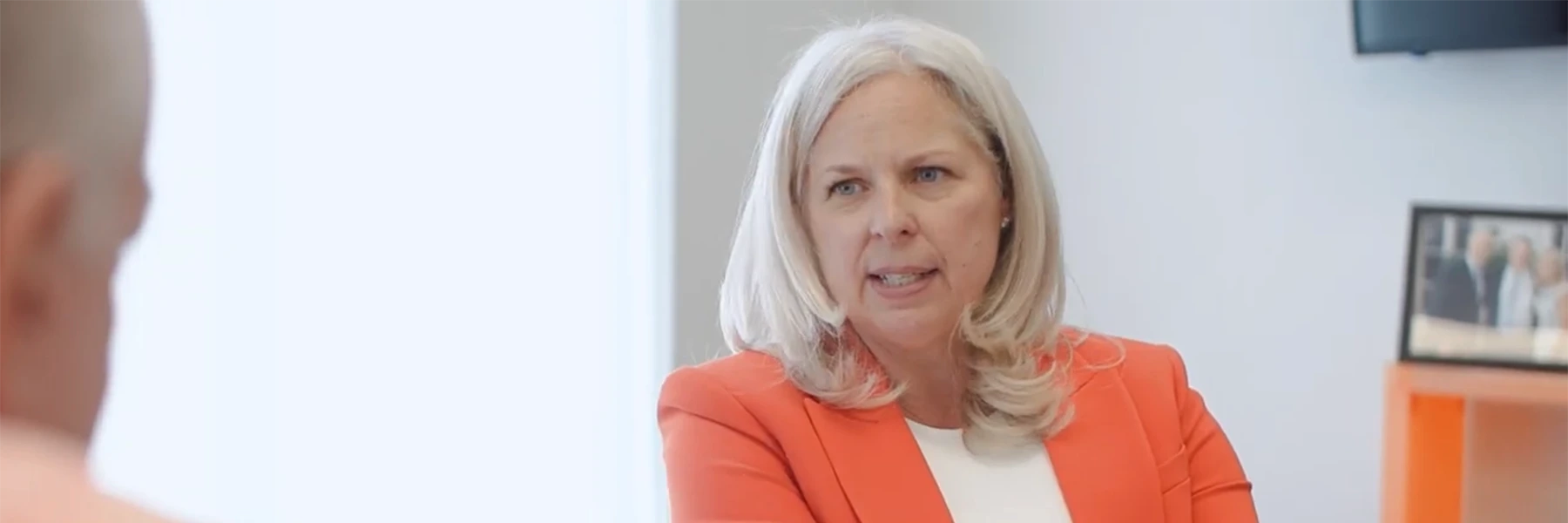Exercise Helps Parkinson’s Patient Manage Symptoms

Breaking the glass ceiling never scared Mindy Mcilroy, but a Parkinson’s disease diagnosis at 44 did.
“Shock. I only knew Parkinson’s as an old person’s disease,” says Mindy.
Ihtsham ul Haq, M.D., Professor of Neurology and Chief of the Movement Disorders Division at UHealth, the University of Miami Health System, says that’s one common misconception when it comes to Parkinson’s.
“Typically, it’s a condition that pops up in someone’s mid-60s, but absolutely there are patients who get it in their 40s,” Dr. Haq says. “People think of tremor when they think of Parkinson’s disease, and that is common, but it’s present in about half to two-thirds of people who have it, depending on age. What you have to have is stiffness and slowness of movement. I’m not as fast as I used to be. It’s hard to take things out of my wallet or get stuff out of my pocket. Buttons are a little bit harder than they used to be.”
Because patients present differently with Parkinson’s disease, Dr. Haq says it’s important to identify what causes their symptoms. That way patients can take advantage of targeted therapies for better outcomes and quality of life.
“There are different kinds of Parkinson’s disease, different genetic causes for Parkinson’s disease that have slightly different mechanisms. I think the really exciting work is in identifying those earlier mechanisms of disease that potentially have interventions,” says Dr. Haq. “We already know that two interventions, exercise and exercise, because I can’t emphasize it enough, make a tremendous difference in how Parkinson’s disease progresses over time.”
Thriving after Parkinson’s diagnosis
“I swim a lot, I do yoga. Just simple walking makes a big difference. You just have to move your limbs,” Mindy says.
UHealth’s Movement Disorders Division offers patients coordinated care.
“We have an interdisciplinary clinic where patients come, and over the course of half a day, stay in that room so they don’t have to worry about moving around. And each of those providers comes in to talk to them. And then at the end of that session, those providers talk to each other and come up with a plan specifically for that patient,” Dr. Haq says.
“I really believe that surrounding yourself with a community of people that understand, having support is really important,” says Mindy.
She travels and still runs a very successful company. Mindy wants people to know that a Parkinson’s diagnosis is not the end of the world.
“If you’re in the right hands, if you’re getting the right care, your symptoms can be managed, and you can really live a whole robust life,” Mindy says.
Video transcript compiled by Janna Ross for ‘Focusing on You: Innovations in Modern Medicine,’ a series of healthcare-related stories airing regularly on WPLG Local 10. For more stories like this one, visit UHealth’s YouTube channel.
Tags: Dr. Ihtsham ul Haq, focusing on you, movement disorders, neurologist, Parkinson’s disease, tremors
